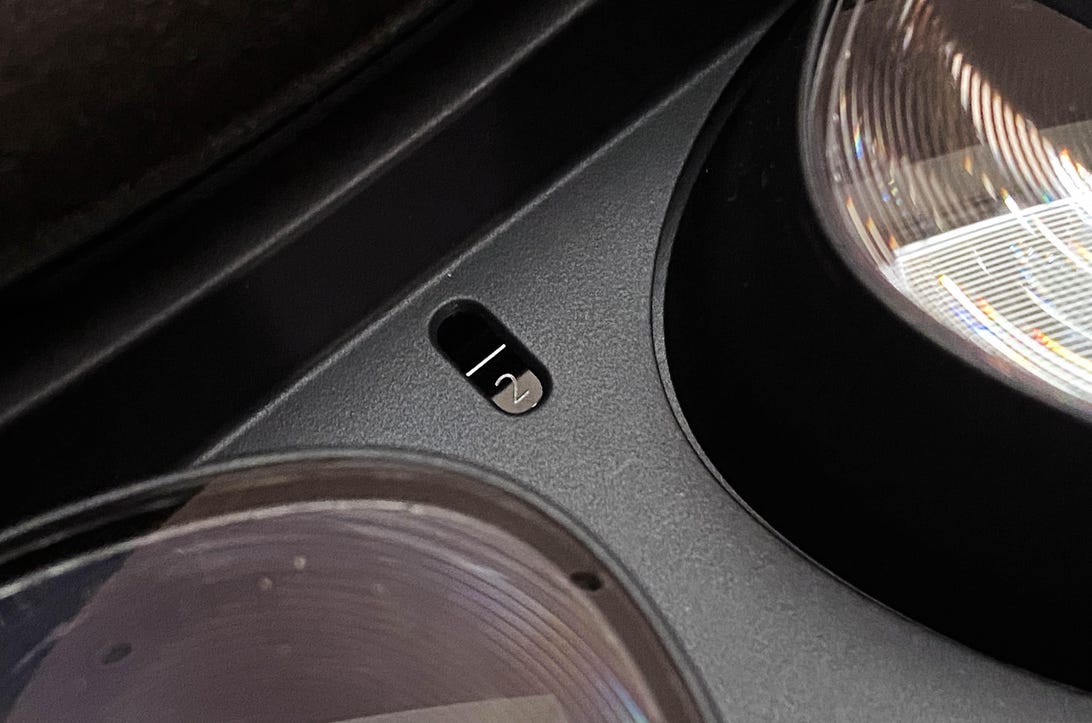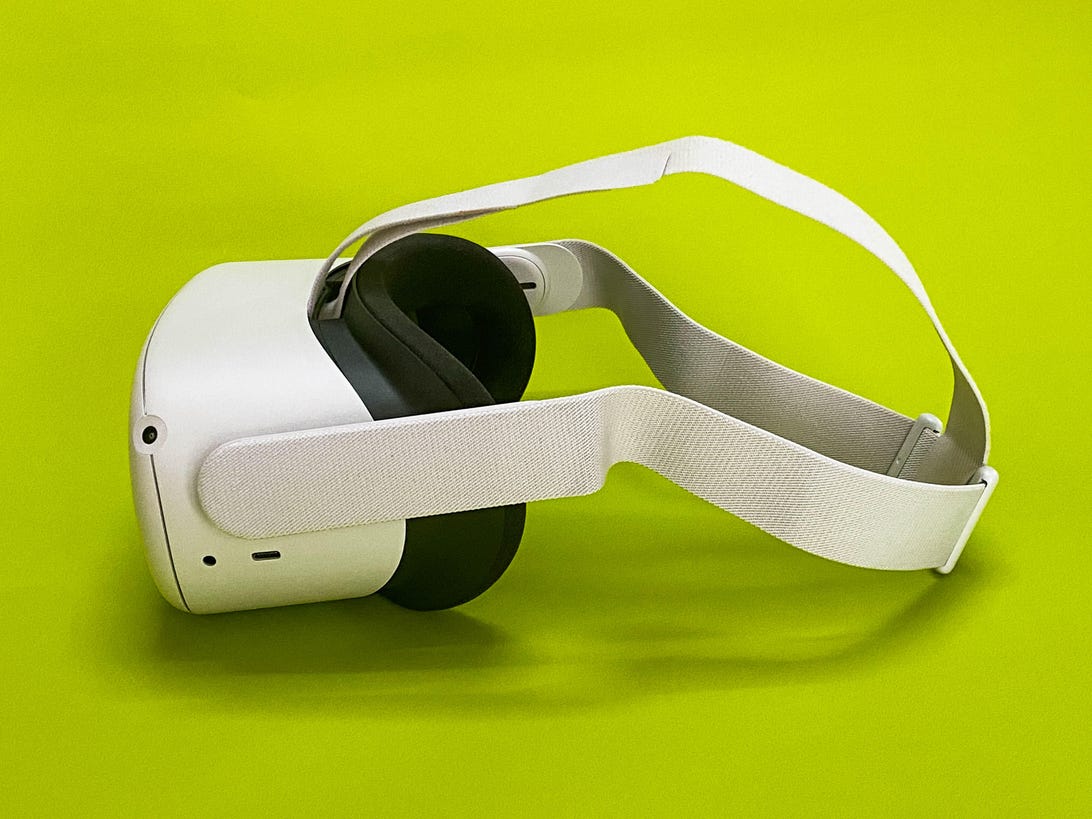
The inside of the Oculus Quest 2, Facebook's current VR headset. Expect more ads in VR: but it's still not clear how much, or when.
Scott Stein/CNETLet's face it: Facebook was bound to put ads in VR eventually. Like collecting personal data, advertising is core to the social network's business model and extends across all of its other apps. Because ad-free VR is clearly an outlier, the company's recently announced plans to test ads in its Oculus VR apps and games felt inevitable. But the developers of the first planned app to test VR ads changed course recently. What will be next?
Ads in VR immediately sound awful, invasive, intimidating, dystopic. For me it brings up thoughts of Max Headroom and ad-injection. Or Blade Runner's hovering holographic ads. O that scene in Ready Player One where IOI head Nolan Sorrento promises to try to maximize all available VR viewing space with ads just short of inducing seizures. The nightmares of ad-overlaid immersive worlds has been plumbed for years, now.
In video games, ads have already found their places to settle. In free-to-play mobile games, they're pop-ups. In Fortnite, they're in-game freebies. In Madden football, they're on the billboards in the stadiums. These moments felt weird once. Now, like with many ads, you barely notice them.
But VR presents a whole new level of discomfort.

How ads would have looked in Blaston, a game that now will not experiment with in-game ads after all.
FacebookFacebook's first planned ad test, in a fighting game called Blaston by Resolution Games, seemed like it would feature billboards in-game that could be clicked on for more information. Fans didn't like the idea at all. So Resolution Games backed out of the experiment.
"We appreciate all of the feedback and thoughts on the Oculus ad test for Blaston and other games that was announced last week," Tommy Palm, CEO of Resolution Games, said in a statement. "We realize that Blaston isn't the best fit for this type of advertising test."
Resolution Games said it could, instead, choose a free-to-play fishing game, called Bait!, as a test app instead. The fan reaction, which reportedly included review bombing Resolution's games, is understandable. I share their concern.

The Oculus Quest 2: a game console, but it's also Facebook-connected.
Scott Stein/CNETA headset is always on. Any sense of escape is gone. My vision is literally funneled in VR until I take the headset off again. If something blasts on the VR display, I can't exactly look away easily if an experience doesn't want me to.
There's also the question of how much of the data Facebook collects on my VR experience will be known to advertisers. Facebook has promised that some data, like movement and camera capture of my room, won't be used. But as more sensors get added to future headsets, where will the lines be drawn?
Facebook says ads in VR games make sense. They will create revenue opportunities for developers, giving them more financial flexibility.
"Ultimately, opening up new revenue streams for devs will help us to unlock new types of content on the Oculus platform and offer products at consumer-friendly prices," Facebook said. "Ads within apps are just one of the things we're exploring to help with this."
But the problem is: This agreement wasn't on the table when people started buying Oculus VR headsets. Advertisements may create value and revenue for VR developers. But they do nothing for consumers who have already shelled out $300 for an Oculus Quest 2. VR has been an ad-free world. Putting ads into already-paid-for apps feels like a money grab.
To me, a more sensible place for ads would be free-to-play content. If Facebook's building out its social playground, Horizon, what about there? Ads could go in free-to-play games like Echo VR. Or they could be used as an alternative to paying for in-game downloadable content or subscriptions? It seems like the streaming video subscription ad model could be applied, in a sense: Hulu with ads, or Hulu without ads.
Facebook's decision to test ads feels beyond anyone's control. It smacks as self-serving, providing benefits to no one other than Facebook. The company should spend some time explaining why anyone would want to compromise and let ads into their experience, and offer something in exchange.
Maybe Facebook already thinks of the Oculus Quest as a subsidized device. After all, a version of the Quest 2 for business that doesn't require a Facebook log-in costs a lot more ($800 for the 256GB model)..
If that's the case, the trade-off was never clearly explained. If Oculus VR apps were split into premium and ad-supported tiers, then it wouldn't seem as intrusive and alien. Right now, however, it isn't a surprise that there's been VR ad backlash. It makes VR, a technology that's promising but intimidating to some people, seem even more unappealing than before.
